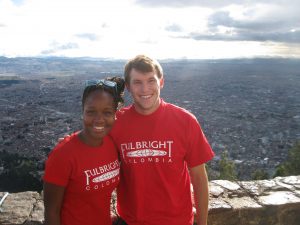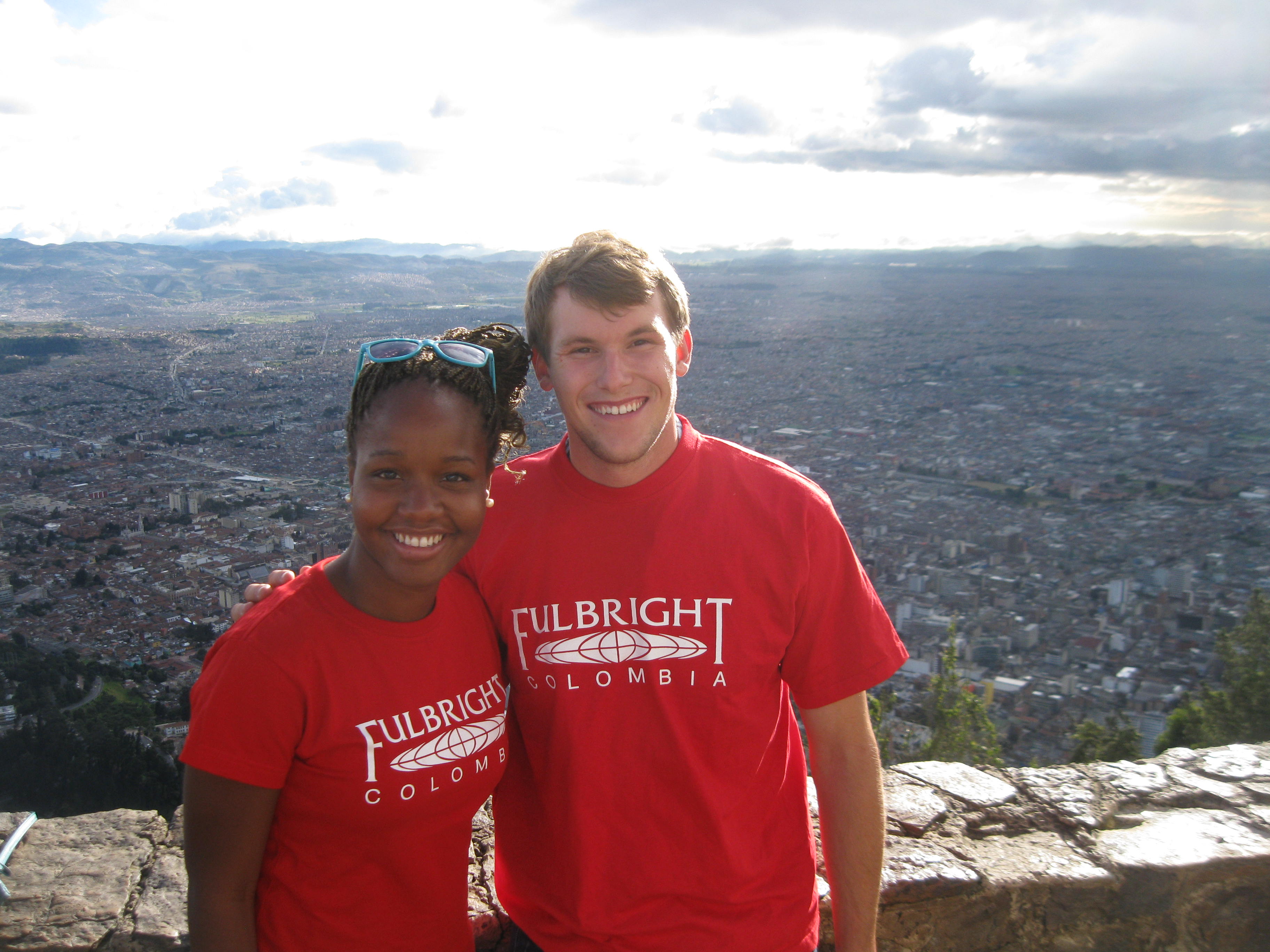
Giffin Daughtridge, 2011-2012, Colombia, and fellow 2011 Fulbright U.S. Student to Colombia Emma Din at Monserrate, a chapel overlooking all of Bogotá, during their orientation week.
Francesca and I were both 22 when we first met in 2011. She was a transsexual sex worker, and I was doing street outreach with the Fundación Fénix as part of my Fulbright U.S. Student grant to Bogotá, Colombia. Through our conversation, I learned she had undergone multiple surgeries from unlicensed street side providers to augment various parts of her body, consistently used a range of drugs, and engaged in sex work with up to 12 clients per day.
I enjoyed our conversation, but it also left me frustrated. Francesca was at extremely high risk of contracting an infectious disease like Hepatitis B (HBV), but she was also at extremely low likelihood of having access to the HBV vaccine. She was deeply distrustful of the public system stemming from years of abuse from police and stigma from healthcare providers, and she refused to go to any clinic or hospital to get the vaccine.
As a result, I dedicated my year to delivering Hepatitis B vaccines to the populations at highest risk of contracting the disease. In Bogotá, this was the female and transsexual sex worker population. By leveraging the healthcare resources of the Bogotá Secretary of Health and the community network with the sex worker population of the Fundación Fénix, we administered HBV vaccines to almost 200 high-risk individuals in their work places.

